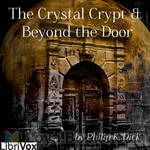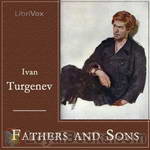|
Books Should Be Free Loyal Books Free Public Domain Audiobooks & eBook Downloads |
|
|
Books Should Be Free Loyal Books Free Public Domain Audiobooks & eBook Downloads |
|
Fiction |
|---|
|
Book type:
Sort by:
View by:
|
By: Philip K. Dick (1928-1982) | |
|---|---|
 The Variable Man
The Variable Man
Predictability has come a long way. The computers of the future can tell you if you’re going to win a war before you fire a shot. Unfortunately they’re predicting perpetual standoff between the Terran and Centaurian Empires. What they need is something unpredictable, what they get is Thomas Cole, a man from the past accidently dragged forward in time. Will he fit their calculations, or is he the random variable that can break the stalemate? – The Variable Man first appeared in the September, 1953 issue of Space Science Fiction magazine. | |
 Second Variety
Second Variety
Early victories by the USSR in a global nuclear war cause the United Nations government to retreat to the moon leaving behind troops and fierce autonomous robots called “Claws”, which reproduce and redesign themselves in unmanned subterranean factories. After six bloody years of conflict the Soviets call for an urgent conference and UN Major Joseph Hendricks sets out to meet them. Along the way he will discover what the Claws have been up to, and it isn’t good… - Second Variety was first published in the May 1953 edition of Space Science Fiction Magazine. | |
 The Crystal Crypt & Beyond the Door
The Crystal Crypt & Beyond the Door
Two early science fiction stories by the wonderful craftsman, Philip K. Dick. In the Crystal Crypt, taken from the 1954 Planet Stories, the war between Mars and Terra is about to erupt and earth has only merchants and salesmen to fight; can they carry out their mission? Beyond the Door is a story that asks and answers the question: what lives beyond the door? And is it dangerous? | |
 Beyond Lies the Wub & The Skull
Beyond Lies the Wub & The Skull
Two stories in the inimitable Philip Dick style. What is a Wub? A 400 pound slovenly, fat, ungainly, drooling animal that looks like a cross between a walrus and an enormous hog? Well, yes that is pretty much what he looks like and for 50 cents, a good bargain no matter how he tastes. The hungry spaceship crew expect to find out. Of course the Wub may not entirely agree but it doesn't have much to say about it. The second story, The Skull, is a skilful mesh of time travel, unscrupulous governments, prisoners, and religion. With an assassin thrown in for good measure. Enjoy! | |
 The Eyes Have It & Tony and the Beetles
The Eyes Have It & Tony and the Beetles
Aliens have invaded the earth! Horrible one celled creatures disguised as normal human beings ! Well, at least that is what it seems to the author. Yes, The Eyes Have It is a whimsical story, making gentle fun of certain writing styles, but only a topflight science-fictionist like Philip Dick , we thought, could have written this story, in just this way. Tony and the Beetles takes place far in the future when Earth's enormous colonial empire is well established but the question is, how long can it last? 10 year old Tony grows up fast when history catches up with the human race. A sobering look at human history .. and our probable future. Two very different stories but both entertaining. | |
By: Ivan S. Turgenev | |
|---|---|
 First Love
First Love
The title of the novella is almost an adequate summary in itself. The “boy-meets-girl-then-loses-her” story is universal but not, I think, banal – despite a surprise ending which notoriously turns out to be very little of a surprise. “First Love” is given its originality and poignancy by Turgenev’s mastery of the piercing turning-point (akin to Joyce’s “epiphanies”) that transforms the character’s whole being, making a tragic outcome inevitable. Even the nature symbolism is rescued from triteness by lovely poetic similes – e... | |
 Fathers and Sons
Fathers and Sons
The fathers and children of the novel refers to the growing divide between the two generations of Russians, and the character Yevgeny Bazarov has been referred to as the “first Bolshevik”, for his nihilism and rejection of the old order. Turgenev wrote Fathers and Sons as a response to the growing cultural schism that he saw between liberals of the 1830s/1840s and the growing nihilist movement. Both the nihilists (the “sons”) and the 1830s liberals sought Western-based social change in Russia... | |
 The Diary of a Superfluous Man
The Diary of a Superfluous Man
Turgenev’s shy hero, Tchulkaturin, is a representative example of a Russian archetype – the “superfluous man”, a sort of Hamlet not necessarily dignified with the title Prince: an individual of comfortable means leading a dreary existence, without purpose and led on by events which may, as in this story, engulf him. The novella takes the form of a diary started by Tchulkaturin in the shock of being diagnosed as having a terminal illness. The journal entries cover a period of two weeks, leading to his death... | |
By: E. Pauline Johnson (1861-1913) | |
|---|---|
 The Moccasin Maker
The Moccasin Maker
| |
By: H. G. Wells | |
|---|---|
 In the Days of the Comet
In the Days of the Comet
William ("Willie") is a student living in the British town of Clayton. As a Socialist, he tries to move power from the upper class to the working class. Interestingly, in a fictitious confrontation Britain declares war on Germany. Willie falls in love with Nettie, but when she elopes with an upper-class man, Willie resolves to kill them both. Throughout the novel there is present in the sky a large comet which gives off a green glow. As Willie prepares to shoot the lovers, two battleships appear and begin shelling the coast, causing Willie to nearly lose his targets... | |